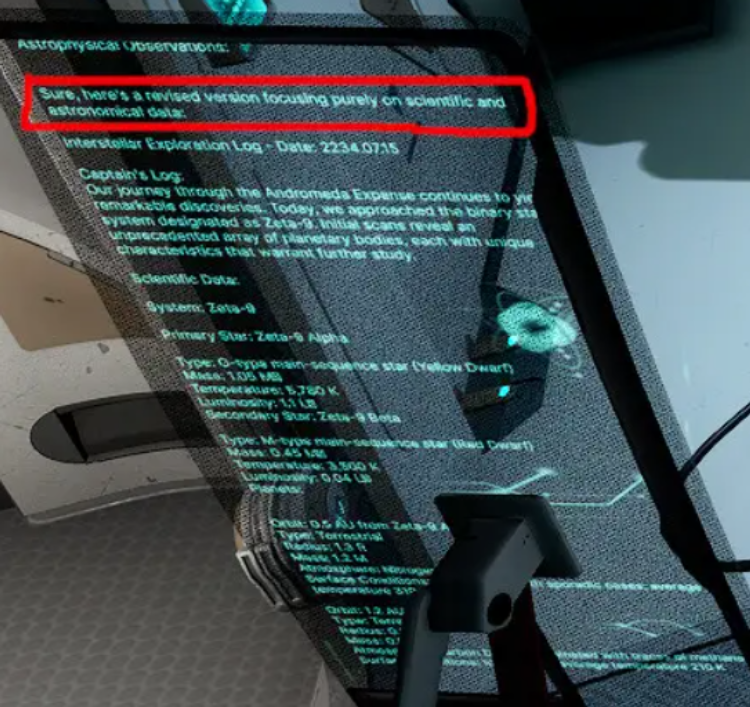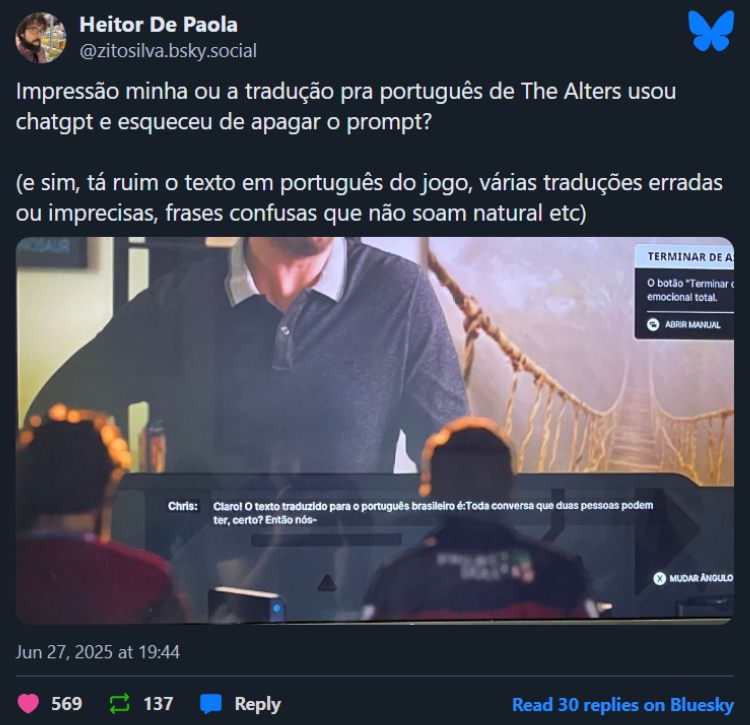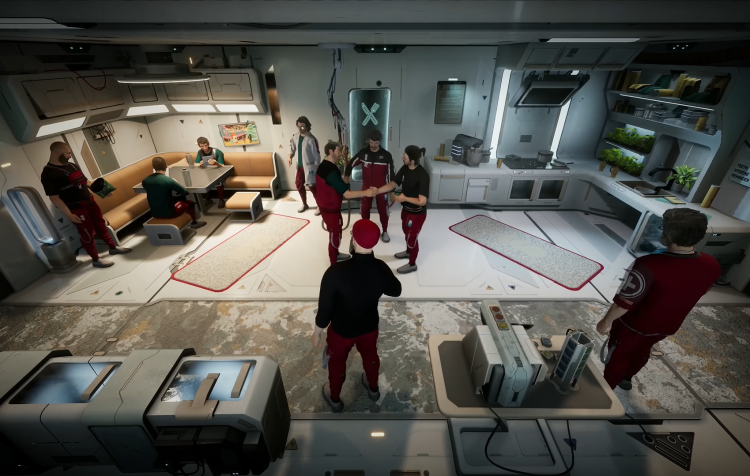The Alters AI Scandal: What Happened and Why It Matters for Games Using AI
The Alters just got hit with a wave of criticism. Players have discovered direct evidence that the game includes AI-generated content, and none of it was disclosed. From strange subtitle errors to full AI prompt leaks in background art, fans aren’t just calling it lazy. They’re calling it dishonest.
A screenshot shared by players shows a background panel starting with:
"Sure, here's a revised version focusing purely on scientific and astronomical data:"
That’s not worldbuilding. That’s an unedited prompt straight from a large language model. The kind of thing you'd expect in a ChatGPT reply, not an immersive sci-fi narrative. And it’s not the only sign.
Brazilian Portuguese subtitles showed even more red flags. One line caught mid-glitch read:
"Sure! The text translated to Brazilian Portuguese is: Every conversation two people can have, right? So we–"
That’s clearly leftover from a translation prompt. And it wasn’t just a one-off. Players reported similar weirdness throughout the localisation, especially in non-English languages.

Since early 2024, Steam has required developers to disclose if any content — art, sound, code, writing, or translation — is generated by AI. That’s part of Valve’s official Steam Distribution Agreement. And yet, The Alters doesn’t say a word about AI anywhere on its store page.
Players noticed.
“The game is using AI-generated content without a proper Steam Page disclaimer!” one comment on Steam read.
“This is absolutely unacceptable. 11 Bit Studios has been caught using AI in The Alters without ANY disclaimer on the Steam page."
And they weren’t alone.
Others pushed back, saying it’s not a big deal if background panels use throwaway text. One user compared it to placeholder gibberish like Lorem Ipsum. Not every piece of a game has to be deeply written if it’s just set dressing.
But this goes deeper than set dressing. Lucile Danilov, a localisation expert, called out the Portuguese version specifically. She originally loved the game. Then she noticed the AI slip-ups.
“Seriously, leaving parts of an AI prompt in the lockit?! Talk about spitting in the face of your international audience!”
According to Danilov, the translation was either done by a careless translator using shortcuts or — more likely — thrown into an LLM at the last minute by someone who didn’t want to deal with final edits.

And she’s not alone in that view. Handong Ryu, who worked on the Korean localisation, backed it up. He confirmed that the Korean version showed similar signs of AI use, with no editing or oversight.
“There has been significant backlash from the Korean gaming community... the criticism stems from a part of the game I had no control over.”
So far, 11 Bit Studios hasn’t responded publicly. No statement, no patch, no Steam page update. Just silence.
This isn’t the first game to get tangled up in the AI content debate. Earlier this week, Jurassic World Evolution 3 removed AI-generated portraits after negative feedback. Developers are still figuring out how to integrate tools like ChatGPT and Stable Diffusion without damaging the experience or trust of players.
That’s the line developers are walking now. AI is a powerful tool. It can speed up workflows, support localisation, and handle bulk writing tasks. But when studios start using it without telling anyone, especially in narrative-heavy games like The Alters, the backlash is inevitable.

Players expect transparency. AI might be here to stay, but hiding it doesn’t help anyone. If a game uses it to create dialogue, design, or even background flavor, that should be disclosed. Otherwise, trust breaks — fast.
And this trust is a big deal in a time when more and more devs are quietly adding generative AI into their pipelines. It's not just 11 Bit. AI now touches everything from quest writing to QA testing. Some studios are up front about it. Others aren’t.
Meanwhile, The Alters is still getting good reviews for its story, moral complexity, and art direction. One Eurogamer critic called it
“startlingly unique,”
and praised how it “prods and probes and makes me think about what I value in life.” But even that praise came with caveats. Some parts felt uneven. Some ideas felt underdeveloped.

That underdevelopment might not be a coincidence.
When AI becomes a shortcut, it’s easy to miss the cracks. Until someone notices the prompt text still floating in the final product.
Now, what could’ve been a quiet win for 11 Bit Studios has turned into a very public scandal — one that’s not going away unless they step up and explain what really happened behind the scenes.

Comments